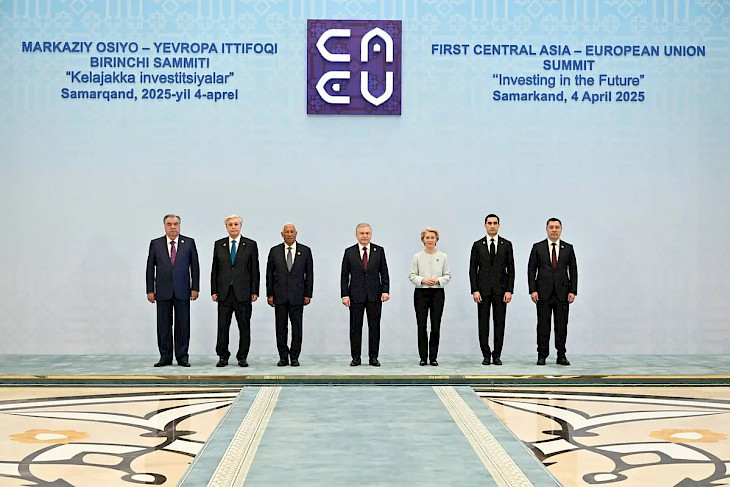The leaders of Central Asian countries and the European Union adopted a joint declaration following the first-ever summit between the two regions, which took place in Samarkand, the European Council’s press service reported.
The document aims to establish a strategic partnership in areas such as trade, transport, energy, digital connectivity, and water resource management.
According to the declaration, relations between the parties have been elevated to the level of strategic partnership. The leaders committed to cooperating for peace, security, and democracy, respecting international law and the UN Charter, including the territorial integrity of all states.
The leaders reaffirmed their commitment to ensuring that Afghanistan becomes a safe, stable, and prosperous country with an inclusive government and governance system that respects human rights and fundamental freedoms for all citizens, including women, ethnic, and religious minorities.
The parties expressed concern over the humanitarian situation in Afghanistan and recognized the need for continued support for its people. The leaders also called for full access to education and public life for women and girls.
Central Asian countries and the EU also agreed to continue cooperation on preventing sanctions evasion.
The EU welcomed the strengthening of regional cooperation through regular Consultative Meetings of Central Asian Heads of State and expressed readiness to support future initiatives aimed at regional integration.
The leaders welcomed the signing of the EU-Kyrgyzstan Enhanced Partnership and Cooperation Agreement on June 25, 2024, and expressed hope for the swift signing of similar agreements with Uzbekistan and Tajikistan. The EU and Kazakhstan also expressed interest in starting negotiations on visa facilitation and readmission agreements.
The parties agreed to hold regular economic events, including the "Central Asia - European Union" Economic Forum.
A key focus of cooperation is the strategic importance of critical raw materials. The leaders agreed that the Declaration of Intent will deepen cooperation in this area, facilitating the transition to a green and digital economy.
The EU and Central Asian countries reaffirmed their commitment to strengthening sustainable transport links. They agreed to support the Coordination Platform for the Trans-Caspian Transport Corridor and critical infrastructure projects along its route.
The leaders pledged to intensify efforts to combat climate change, biodiversity loss, and environmental pollution. The EU welcomed the decision of all Central Asian partners to join the Global Methane Pledge.
The parties also agreed to innovate water-energy cooperation to ensure protection and efficient use of water resources. They committed to enhancing cooperation to improve the environmental situation in the Aral Sea basin.
The leaders of Central Asia and the EU reiterated that the promotion and protection of the rule of law, human rights, and fundamental freedoms are shared and fundamental values.
Freedom of expression and association, support for civil society and independent media, protection of human rights defenders, and the promotion of women’s rights, children's rights, and labor rights remain at the core of EU-Central Asia relations. The EU reaffirmed its willingness to provide support in these areas.
The EU and Central Asian leaders agreed that the Civil Society Forum of the two regions is a key platform for dialogue and for expanding regional cooperation through civil society engagement.
CentralasianLIGHT.org
April 4, 2025

